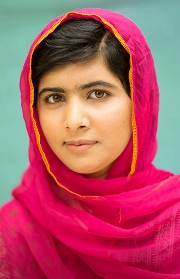Powerful Women in History
Whoever coined that the phrase “weaker sex” when referring to women didn’t know women at all. At physical level, women can do anything that men can do: they are in the defense forces, in sports, and in the police force, where they have proven themselves to be equal to men in physical strength. However the real power and strength of women is hidden inside. They can multi-task between running a business or a career, studying, raising children and running a household. They can inspire a man or a child to achieve great success in his career or business. They personally overcome great challenges to achieve great success.
Women Through History
Joana Darc
Women have always been powerful. We know about the Queen of Sheba who befriended King Solomon of the Old Testament and Cleopatra, the Pharaoh of Egypt, whose power, wit and intellect wowed Antony and Caesar before she died in 30B.C. Those who read the Bible know the story of Esther, Ruth, Martha and Mary who were powerful women in their own right and made a notable impact on their people.
In 1792, Mary Wollstonecraft shocked society by calling for equality between men and women. Her 1792 publication A Vindication of the Rights of Women met with a huge problem and it was not printed again till mid-1800s. She is the pioneer of women’s rights.
In 1835, Joan of the Arc (a 13 year old French peasant girl) led the French army to victory during the well-known 100-years-war with England. She rose against all odds, claiming that God had chosen her for victory, at a time when women were not considered for the army. Incidentally she was burned at the stake after being tried for witchcraft and heresy in 1841 at the age of 19. She was destroyed by men because of her power. Thanks to powerful women like Mary Wollstonecraft and Joan of the Arc, now women can freely join the armed forces and be anything they want to be.
Marie Curie (1867-1934) was a physicist and chemist who pioneered research on radioactivity. She was the first woman to win a Nobel Prize, the first person and only woman to win it twice, and the only person to win a Nobel Prize in two different sciences. She was also the first woman to become a professor at the University of Paris. Marie Curie proved that women can excel in the sciences and since her time women have contributed a lot to the sciences.
In 1903 Emmeline Pankhurst was the co-founder of the Women’s Social and Political Union (WSPU) in 1903, whose clear agenda focused on direct action to win women the right to vote. We all exercise our right to vote now because of her courage. (Marie Claire, 2017).
All these women, and many others that we have not mentioned, showed that women have always been powerful throughout the ages.
Contemporary Women
Women have come a long way since the days of Mary Magdalene, Joan of the Arc and Marie Curie. They can now earn an education, have a career away from home, become politicians and still marry and raise a family. While they fall behind men in terms of numbers and remuneration, they are a great percentage of the workforce and a smaller percentage in leadership positions. That did not come easily: In each area women had to pioneer and fight for their rights to participate.
Malala Yousafzai
On December 1, 1955, Rosa Parks, a 42-year-old African-American seamstress refused to give up her seat to a white passenger, an act that ignited a 381 day boycott that forced the city of Montgomery to repeal its laws that enforced racial segregation on public buses. Rosa became a figurehead for the civil rights movement in the USA.
In some parts of society, women still have to fight for basic rights, as shown by Malala Yousafzai, a Pakistani teenager, who was shot in the head in 2012 for speaking up about girl education. She survived the gunshot wounds and went on to receive the Nobel Peace Prize in 2014.
Thanks to all these women for paving the way and showing us that courage pays, we can now aspire to be anything we want to be, and we can go for it.




